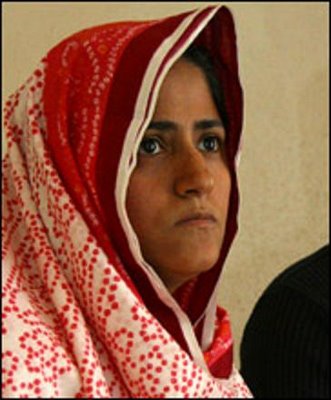
Dr Shazia Khalid's rape is internationally known and is an example of the fact that rape in Pakistan is not just limited to the lower classes. One of today’s top international headlines is that
Pakistan’s upper house of parliament has today finally passed very minor amendments – but improvements nonetheless – to a set of laws which should actually be completely eradicated, regarding premarital and extramarital sex, as well as rape. The laws, called “Hudood” which is Arabic for “limits” basically follow sharia law in their governance of people’s private matters, as well as matters of criminal sexual conduct which according to various human rights groups both in Pakistan and abroad are in high numbers and increasing in Pakistan.
The amendments to the Hudood law include punishments that still fail to be in line with a universal standard of human rights:
--for those people convicted of having consensual sex (including those who are
indeed at the legal age of consent) there will no longer be a punishment of
death or flogging, however they are still subject to 5 years imprisonment or a
10,000 rupee fine (equivalent to approximately USD 160). It is worth pointing
out that the average salary in Pakistan, according to the Islamic Relief Agency is approximately USD 420 annually .
-- DNA and other scientific evidence can now be admissible in court for rape cases
--the great newsmaker is that now, according to the discretion of a judge, a rape case can be tried in either a sharia court or a civil court – the improvement being
that in a civil court a rape victim is not obligated to produce 4 male witnesses
to the rape in order to justify the fact that her life has just been ruined.
However, one wonders at the benefits of a law that would place major decisions on rape cases in the hands of men at all, for two reasons: rape is most often a crime against women, and rape cases against men are reported even less than women, especially in societies where any reference at all to homosexuality is extremely intolerable, even when it is nonconsenual. A close look at the situation of women judges in Pakistan indicates that, well, there aren't that many of them:
--Of the 77 judges in the courts of the Ministry of Law, Justice and Human
Rights – which, by the way, doesn’t even have a Human Rights Court amongst its 8
different courts -- only 4 are women
--Of the 4 major high courts, only 2 of 78 judges are women: Lahore High Court (0/36); Sindh-Karachi (2/23); Peshawar (0/14); Baluchistan (0/5)
--Of the 8 judges on the Shariat court, all are men
The interesting thing about the Pakistan situation is that like many of its neighboring countries in the late 1970's, it fell prey to a US-backed religious dictator, in this case
Mohammad Zia ul-Haq -- who was not only crucial to helping the US fight the communists in the region (Zia ul-Haq was a fundamental tool for the US-backed Mujaheddin forces against the Soviet Union in Afghanistan), but was specifically hand chosen by the US to implement a religious environment on his country.
Prior to Zia ul-Haq's Islamization of Pakistan -- wherein he created Shariat courts to rule the peoples' private lives, massively increased religious madrassah schools and religious training in the country, and overall imposed religious beliefs and practices in all levels of Pakistani life -- most Pakistanis were actually not very religious at all, except in the sense that they identified themselves as Muslims. This is the reason why, according to famed Pakistani intellectual Tariq Ali, most Pakistanis of his generation were very secular and today's generation (the progeny of Ali's generation) are so very religious. He has asserted time and again that it was not even a common practice for people to celebrate Ramadan or Eid-ul-Fitr back then, though today it is perhaps the most significant holiday of the calendar year.
Pakistan, like Iran, like Afghanistan, like so many of these neighboring nations, has become a hotbed of not only religious fundamentalism but of intense religious moderation -- yes, the moderates are arguably more dangerous than the fundamentalists since they are more influential on a broader scale and since fundamentalism is initially rooted in moderation -- for one reason and one reason only: because the US wished it that way to fight off any chances of communist takeovers. Too bad the people don't recognize this -- that's how powerful religious brainwashing is.
It now remains to be seen whether the President decides to pass the amendments to the Hudood law too, though at this point it is a mere formality and he will almost certainly do so. However,
human rights violations continue to be on a large and disturbing scale in Pakistan and there is still a long way to go before basic human rights are not only respected by the law but by the people themselves.
As I've always done, I like to put these things in perspective: Western and non-Islamic nations are hardly an improvement when it comes to equal employment for men and women. The US Supreme Court has only 1 of 9 judges who is a woman, for instance. However, in those countries there is one significant positive: a lot more of the basic human rights (as indicated in the UN Declaration of Human Rights and other human rights documents) that all humans deserve are being respected. In places like Pakistan, basic human rights issues are years, perhaps generations away from being up to standard.
This is the issue at hand -- this is the reason why it is so easy for the West to condemn non-Westerners: because so many non-Western nations fail to meet basic standards of human rights for the bulk of their people -- though, to be fair, many of these non-Western governments are being led by ignorant, uncompassionate criminals placed and supported in power by Western governments. Nonetheless, on the face of it, this is why the West is so arrogant and condescending toward the non-West. But this is also why the non-West should get its act together, recognize its shortcomings and fall in line with progressive and logical standards for the treatment of people -- standards most often referred to as human rights.
A wise person once said that "laws are for idiots," meaning that certain things should just be common sense. Sadly, as we know, common sense is a rare commodity which is why there is so much stagnation in human advancement. Pakistan's laws have today taken a tiny step toward advancement, but the bigger question is whether Pakistan's people will take that step, too.
Labels: Humane Rights, the Middle East
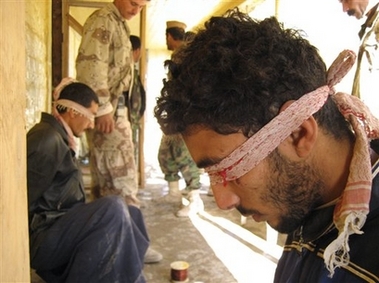






 .............................................................................(Source)
.............................................................................(Source)

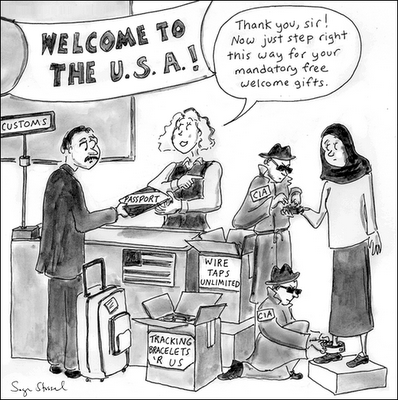 ..............................................(Source)
..............................................(Source)
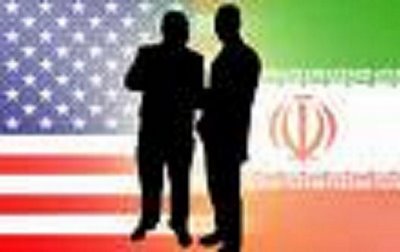




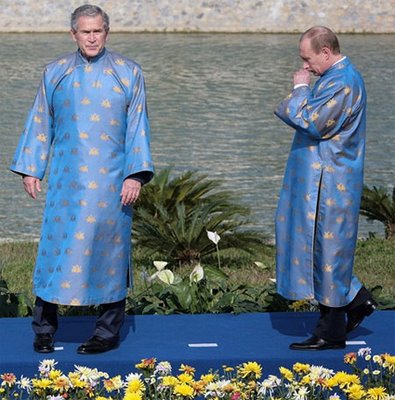





 This blog came into existence because the Saccharinist was fatigued with all of the horrible news in the world and the complete lack of honest evaluation of it on a regular basis by anyone in any mainstream or even off-the-cuff-mainstream media. Everyday the news, sadly, is bad.
This blog came into existence because the Saccharinist was fatigued with all of the horrible news in the world and the complete lack of honest evaluation of it on a regular basis by anyone in any mainstream or even off-the-cuff-mainstream media. Everyday the news, sadly, is bad. 



 .............................................................(Picture Source)
.............................................................(Picture Source)